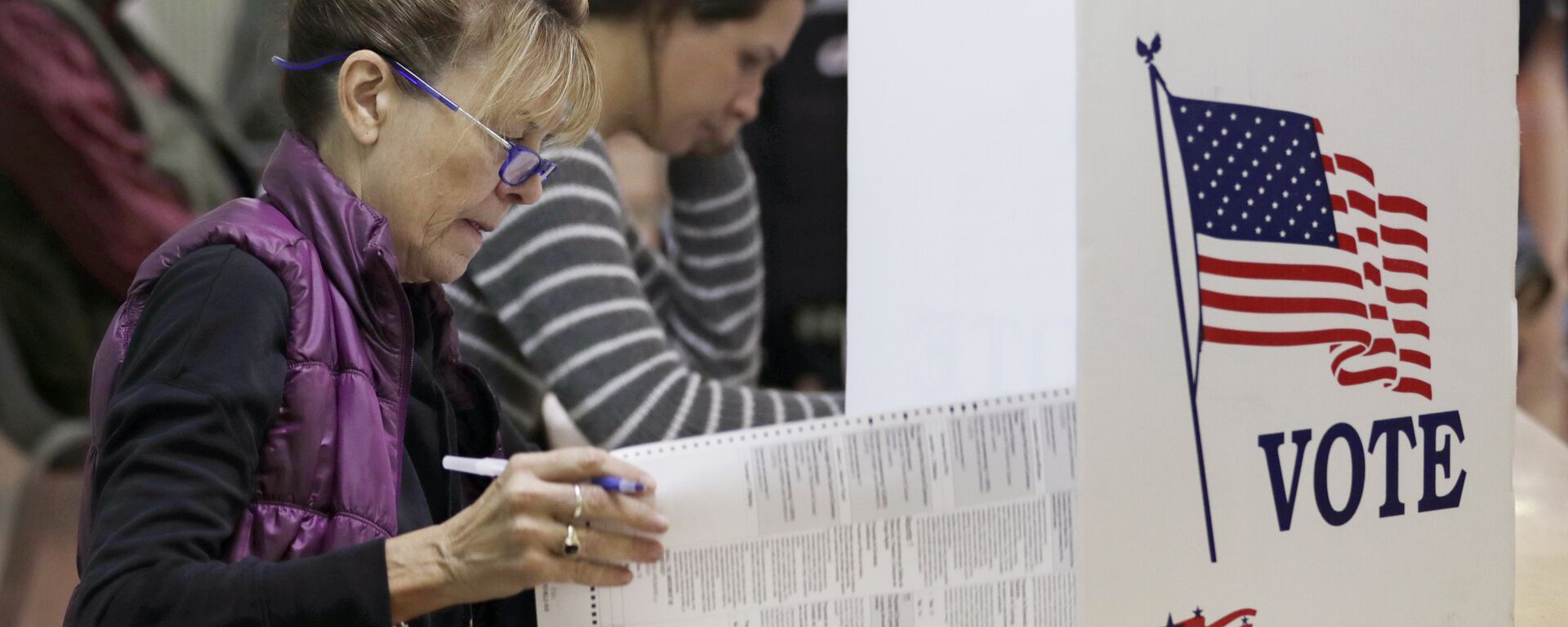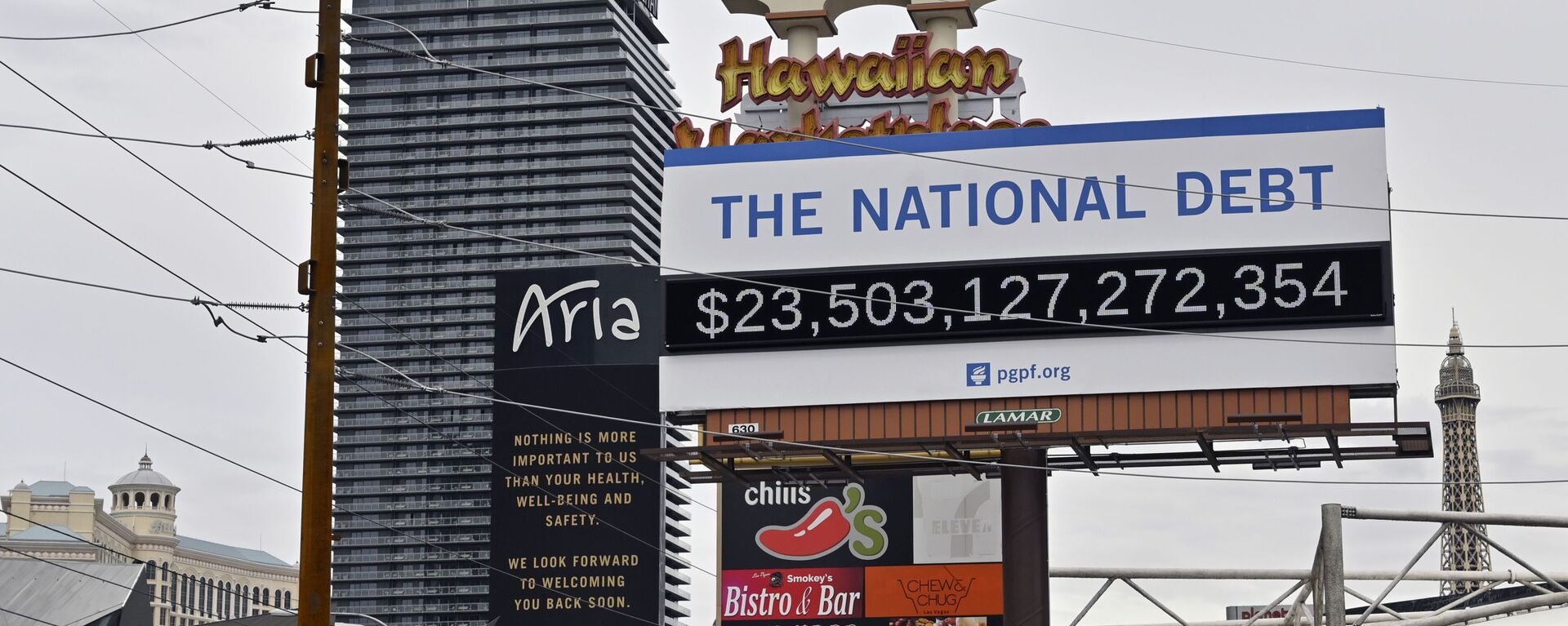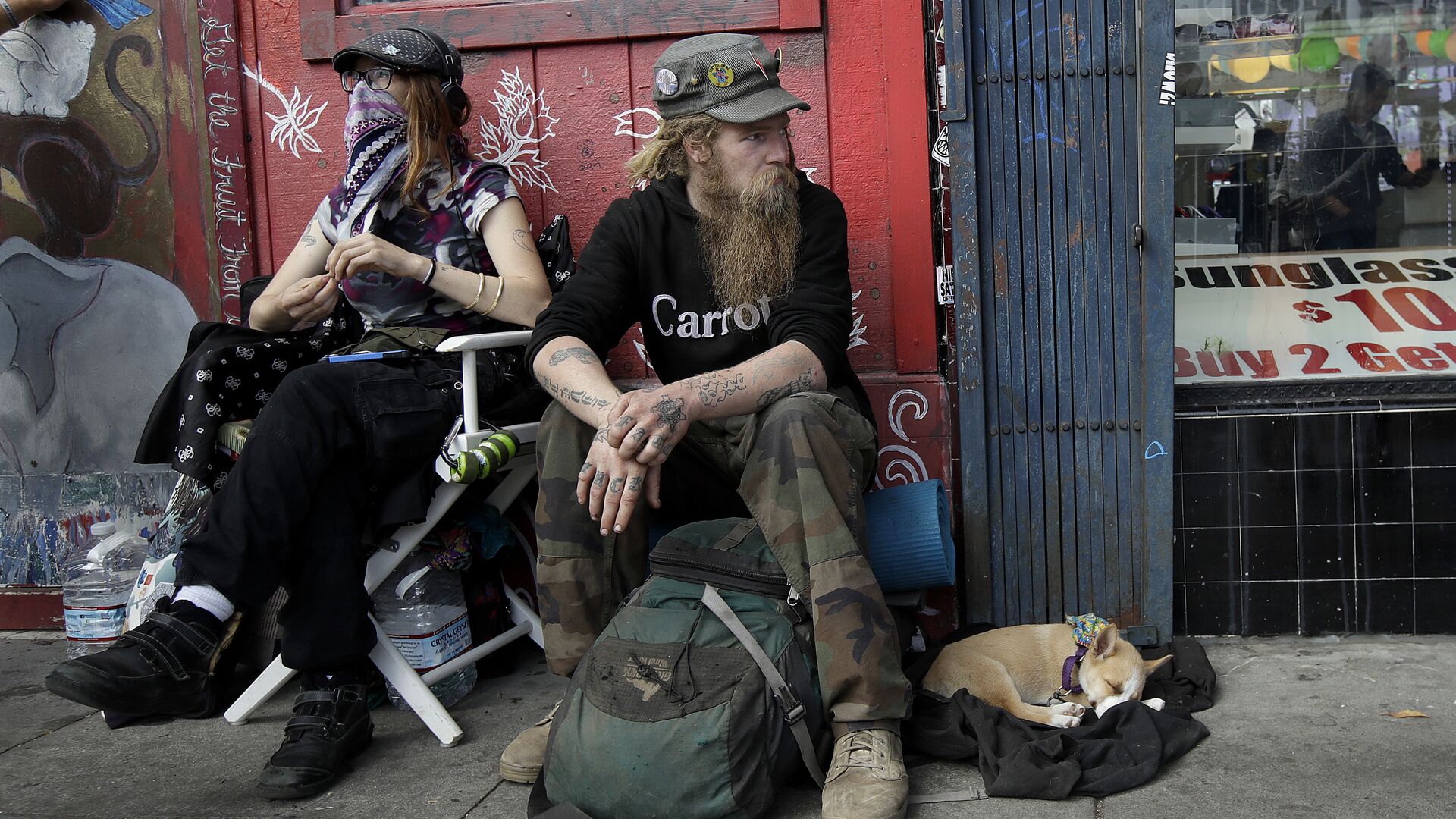https://sputnikglobe.com/20221010/silicone-valley-becoming-siligone-valley-as-tech-meccas-wealthy-flee-1101685704.html
Silicon Valley Becoming SiliGONE Valley as Tech Mecca’s Wealthy Flee
Silicon Valley Becoming SiliGONE Valley as Tech Mecca’s Wealthy Flee
Sputnik International
Once celebrated as the engine behind America’s booming tech sector, Silicon Valley – an area of California between San Francisco, San Jose, and Oakland, has... 10.10.2022, Sputnik International
2022-10-10T12:40+0000
2022-10-10T12:40+0000
2023-03-13T09:25+0000
americas
california
san francisco
homelessness
silicon valley
https://cdn1.img.sputnikglobe.com/img/106955/39/1069553908_0:245:4344:2689_1920x0_80_0_0_fab3fe1a642eb5b891fa80c6622e92b3.jpg
Silicon Valley continues to lose its luster in the face of urban decay, with wealthy tech residents leaving in droves during the pandemic, and regional median incomes plummeting, newly compiled federal census data has revealed.The data showed that among the nation’s 25 largest urban areas, the San Francisco metro area suffered the largest single drop in median household incomes in the country between 2019 and 2021.The Phoenix-Mesa-Chandler, Arizona metro did best, with the median household incomes rising by 5.2 percent, from $71,954 to $75,731, according to the government.Giant Sucking SoundTens of thousands of high net worth individuals left California in 2020 and 2021, taking nearly $7 billion with them to other states' tax jurisdictions.The exodus was made possible by ample opportunities for distance work among Silicon Valley’s army of office workers.However, reports also attribute the problem to the dramatic increase in a range of social ills, including crime, homelessness, and economic decline. In August, a 125-member strong San Francisco business association sent the city government a letter threatening to stop paying taxes unless the city took measures to get the homelessness situation under control.In neighboring San Jose, which is part of the San Francisco metro area, authorities have resorted to sweeping homeless people from local parks and other encampments.Silicon Valley cities and other urban areas across the state have also suffered a major spike in crime, with a recent Public Policy Institute of California analysis finding the state’s violent crime rate jumping by six percent between 2020 and 2021, with aggravated assaults, homicides, and rapes increasing by between 7.7 and 7.9 percent. However, the current violent crime rate of 440 per 100,000 inhabitants remains far below the peak reached in 1992, when it was 1,115 per 100,000 residents.Silicon Valley’s decline has become a major talking point in debates raging between Republican and Democratic politicians amid the upcoming midterm elections, with GOP officials repeatedly attacking their rivals, including House Speaker Nancy Pelosi – who represents San Francisco’s 12th District, and encouraging them to “clean up” their districts, cities, and states before focusing on national problems.A National ProblemThe disheartening Silicon Valley and California data comes amid fears of a looming recession amid spiking energy costs and the worst inflationary pressures in the country since the stagflationary crisis of the early 1980s.The growing problems stemming from social problems plaguing California and other US states comes as Washington continues to send tens of billions of dollars overseas to prop up its global empire. The US has funneled over $66 billion into its proxy conflict with Russia in Ukraine. By comparison, a Department of Housing and Urban Development study has calculated that it would cost about $20 billion to end homelessness in America.
https://sputnikglobe.com/20221008/dems-reportedly-use-opaque-media-outlets-for-partisan-messaging-ahead-of-midterms-1101629436.html
https://sputnikglobe.com/20221006/the-united-states-debt-just-topped-31-trillion-what-needs-to-be-done-1101554257.html
https://sputnikglobe.com/20220930/how-us-could-have-spent-money-wasted-on-new-ukraine-military-aid-package-1101387785.html
americas
san francisco
silicon valley
Sputnik International
feedback@sputniknews.com
+74956456601
MIA „Rossiya Segodnya“
2022
News
en_EN
Sputnik International
feedback@sputniknews.com
+74956456601
MIA „Rossiya Segodnya“
Sputnik International
feedback@sputniknews.com
+74956456601
MIA „Rossiya Segodnya“
california, san francisco, homelessness, silicon valley
california, san francisco, homelessness, silicon valley
Silicon Valley Becoming SiliGONE Valley as Tech Mecca’s Wealthy Flee
12:40 GMT 10.10.2022 (Updated: 09:25 GMT 13.03.2023) Once celebrated as the engine behind America’s booming tech sector, Silicon Valley – an area of California between San Francisco, San Jose, and Oakland, has suffered a series of blows to its reputation in the face of numerous economic and social crises and technological changes which have affected the region, the country, and the world.
Silicon Valley continues to lose its luster in the face of urban decay, with wealthy tech residents leaving in droves during the pandemic, and regional median incomes plummeting, newly compiled federal census
data has revealed.
The data showed that among the nation’s 25 largest urban areas, the San Francisco metro area suffered the largest single drop in median household incomes in the country between 2019 and 2021.
The population of San Francisco County dropped by 6.7 percent between 2020 and 2021, while median annual income of the wider metro area plummeted by 4.6 percent, or $5,546 per year, between 2019 and 2021. The only major urban area to drop by a comparable margin was the NY-NJ-PA metro area, where median incomes fell by 4.2 percent. Incomes in the Houston-Woodlands-Sugar Land, Texas metro drooped 3.3 percent during the same period.
The Phoenix-Mesa-Chandler, Arizona metro did best, with the median household incomes rising by 5.2 percent, from $71,954 to $75,731, according to the government.
Tens of thousands of high net worth individuals left California in 2020 and 2021, taking
nearly $7 billion with them to other states' tax jurisdictions.
The exodus was made possible by ample opportunities for distance work among Silicon Valley’s army of office workers.

8 October 2022, 07:08 GMT
However, reports also attribute the problem to the dramatic increase in a range of social ills, including crime, homelessness, and economic decline. In August, a 125-member strong San Francisco business association
sent the city government a letter threatening to stop paying taxes unless the city took measures to get the homelessness situation under control.
In neighboring San Jose, which is part of the San Francisco metro area, authorities have resorted to
sweeping homeless people from local parks and other encampments.
California’s homelessness population skyrocketed during the pandemic, with over 22,000 additional people taking to the streets, many of them after losing their jobs or due to problems with addiction stemming from the nation’s raging opioids epidemic. The state’s total homelessness numbers hit more than 173,000 people, according to a study conducted by CalMatters, a local nonprofit.
Silicon Valley cities and other urban areas across the state have also suffered a major spike in crime, with a recent Public Policy Institute of California
analysis finding the state’s violent crime rate jumping by six percent between 2020 and 2021, with aggravated assaults, homicides, and rapes increasing by between 7.7 and 7.9 percent. However, the current violent crime rate of 440 per 100,000 inhabitants remains far below the peak reached in 1992, when it was 1,115 per 100,000 residents.

6 October 2022, 00:55 GMT
Silicon Valley’s decline has become a major talking point in debates raging between Republican and Democratic politicians amid the upcoming midterm elections, with GOP officials repeatedly attacking their rivals, including House Speaker Nancy Pelosi – who represents San Francisco’s 12th District, and encouraging them to “clean up” their districts, cities, and states before focusing on national problems.
The disheartening Silicon Valley and California data comes amid
fears of a looming recession amid
spiking energy costs and the worst inflationary pressures in the country
since the stagflationary crisis of the early 1980s.
The growing problems stemming from social problems plaguing California and other US states comes as Washington continues to send tens of billions of dollars overseas to prop up its global empire. The US has funneled
over $66 billion into its proxy conflict with Russia in Ukraine. By comparison, a Department of Housing and Urban Development study
has calculated that it would cost about $20 billion to end homelessness in America.

30 September 2022, 18:44 GMT





